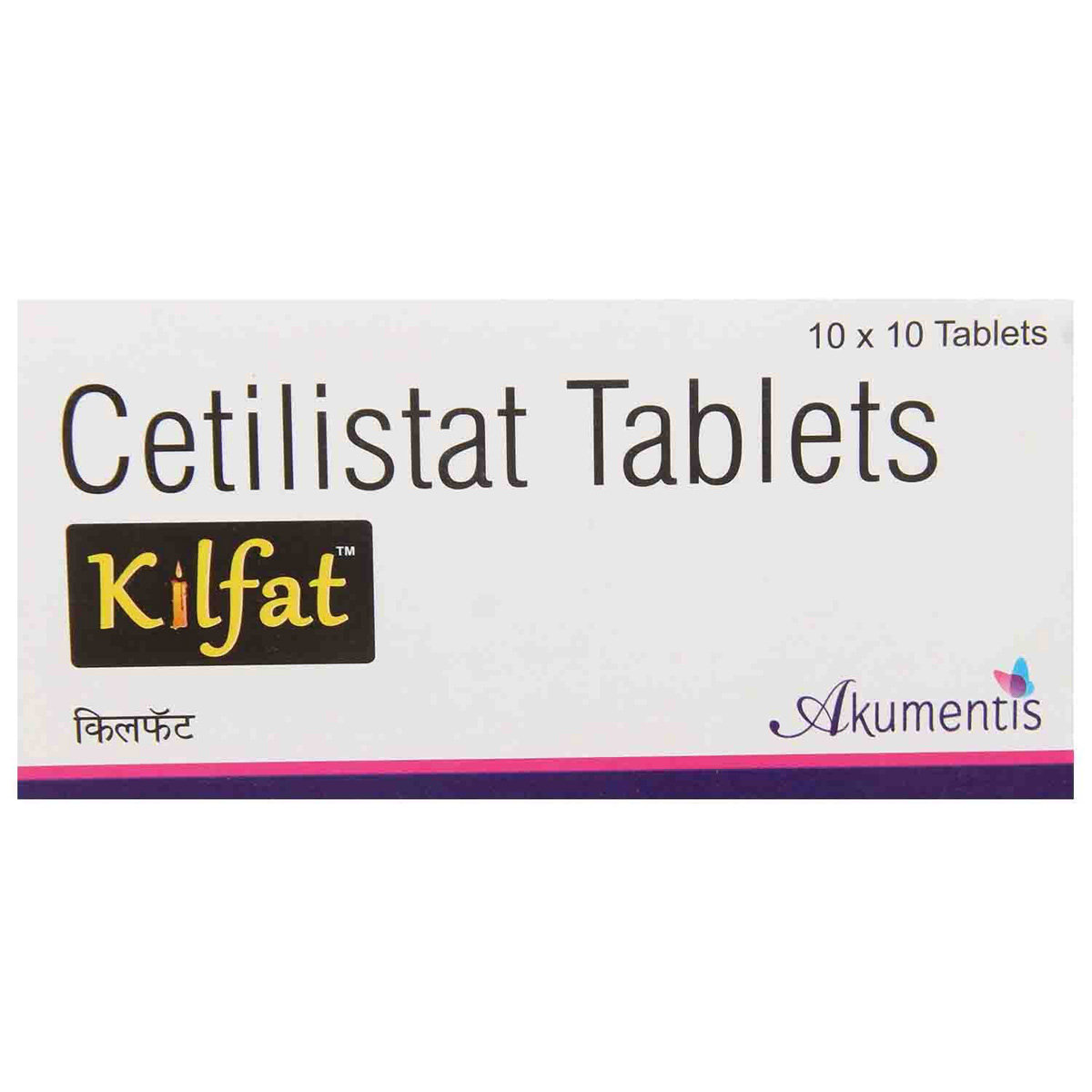Cetilistat
About Cetilistat
Cetilistat belongs to the class of medications called anti-obesity drugs used to treat obesity and help in weight loss. Cetilistat is to be used along with a low-calorie diet and regular physical exercise. Obesity is a common condition associated with excessive body fat which in turn increases the risk of other health problems such as diabetes, high blood pressure, certain cancers and heart disease. Intake of more calories than you burn by exercise or daily activities results in obesity.
Cetilistat contains Cetilistat that decreases the absorption and digestion of fat from the food you eat. Thus, fat passes through the gut and is excreted in the faeces, which makes the body unable to use fat as a source of energy or convert it into fat tissue. Thereby, Cetilistat helps in weight loss.
You are advised to take Cetilistat for as long as your doctor has prescribed it for you based on your medical condition. Some people may experience soft stools, sudden bowel motions, flatulence (gas) with or without oily spotting, oily or fatty stools, stomach pain, stool incontinence (involuntary leakage of stools), runny or liquid stools. Most of these side effects of Cetilistat do not require medical attention and gradually resolve over time. However, if the side effects persist, please consult your doctor.
If you are allergic to Cetilistat or any other medicines, please tell your doctor. Avoid taking Cetilistat if you are pregnant or planning for pregnancy as it may cause foetal harm. It is not known whether Cetilistat is excreted in human milk. Therefore, please consult a doctor if you are breastfeeding women. Cetilistat is not recommended for children below 18 years of age, as the safety and effectiveness were not established. You are advised to take fat-soluble vitamins such as A, D, E and K at bedtime as Cetilistat may reduce the absorption of certain vitamins in the body.
Uses of Cetilistat
Medicinal Benefits
Cetilistat contains Cetilistat, an anti-obesity drug used to treat obesity and help in weight loss. Cetilistat works in the small intestine and stomach and prevents the action of enzymes that breakdown fat which is absorbed by the body. Cetilistat inhibits pancreatic lipase, an enzyme necessary for the digestion of fats, and thus decreases the absorption of fat from the food you eat. Hence, fat passes through the gut and is excreted in the faeces, making the body unable to use fat as a source of energy or convert it into fat tissue. Thereby, Cetilistat helps in weight loss and reduces the risk of serious health problems.
Directions for Use
Storage
Side Effects of Cetilistat
- Nausea
- Sudden bowel motions
- Flatulence (gas) with or without oily spotting
- Oily or fatty stools
- Stomach pain
- Stool incontinence (involuntary leakage of stools)
- Runny or liquid stools
- Dark urine
Drug Warnings
If you are allergic to Cetilistat or any other medicines, please tell your doctor. If you have cholestasis (bile flow from the liver is blocked), chronic malabsorption syndrome, anorexia or bulimia (eating disorder), thyroid disorder, diabetes, or kidney or liver problems, please consult a doctor before taking Cetilistat. Avoid taking Cetilistat if you are pregnant or planning for pregnancy as it may cause fetal harm. It is not known whether Cetilistat is excreted in human milk. Therefore, please consult a doctor if you are a breastfeeding women. Cetilistat is not recommended for children below 18 years of age, as the safety and effectiveness were not established. Do regular exercise and maintain a low-fat and low-calorie diet along with Cetilistat for effective results. If you get severe diarrhoea as a side effect, the effectiveness of the oral contraceptive pill may reduce when taken with Cetilistat. In such cases, use extra contraceptive methods to prevent pregnancy. You are advised to take a multivitamin containing fat-soluble vitamins such as A, D, E, and K at bedtime as Cetilistat may reduce the absorption of certain vitamins in the body.
Drug Interactions
Drug-Drug Interaction: Cetilistat may interact with immunosuppressant (ciclosporin), blood thinner (warfarin), antidiabetic drug (acarbose), thyroid medicine (levothyroxine), medicine for heart rhythm problems (amiodarone), anticonvulsants (lamotrigine), HIV/AIDS drug (atazanavir).
Drug-Food Interaction: Avoid high-fat meals that include butter, meat, dark chocolate, olive oil, nuts and seeds (brazil nuts) with Cetilistat as it may increase the risk of adverse effects on stomach or intestines.
Drug-Disease Interaction: If you have cholestasis (bile flow from the liver is blocked), chronic malabsorption syndrome, anorexia or bulimia (eating disorder), thyroid disorder, diabetes or kidney or liver problems, please consult a doctor before taking Cetilistat.
Drug-Drug Interactions Checker List:
Safety Advice

Alcohol
cautionInteraction of Cetilistat with alcohol is unknown. Please consult a doctor before consuming alcohol while using Cetilistat.

Pregnancy
unsafeCetilistat is a Category X pregnancy drug and is considered unsafe for pregnant women as it may cause harm to the unborn baby. So, if you are pregnant or planning for pregnancy, please inform your doctor before taking Cetilistat.

Breast Feeding
cautionIt is unknown whether Cetilistat is excreted in human milk. Therefore, it is given to breastfeeding mothers only if the doctor thinks benefits are greater than risks.

Driving
safe if prescribedCetilistat usually does not affect your ability to drive or operate machinery.

Liver
cautionTake Cetilistat with caution, especially if you have a history of Liver diseases/conditions. The dose may be adjusted by your doctor as required.

Kidney
cautionTake Cetilistat with caution, especially if you have a history of Kidney diseases/conditions. Cetilistat may cause kidney stones in patients suffering from chronic kidney disease. Please consult a doctor if you have kidney problems so that the dose may be adjusted by your doctor as required.

Children
unsafeCetilistat is not recommended for children below 18 years of age, as the safety and effectiveness were not established.
Habit Forming
Diet & Lifestyle Advise
- Invest in a balanced diet. Do not starve yourself. Make sure you eat lean, clean, and small meals. Eat more vegetables, fruits, whole grains, lean meats, and low-dairy fat products.
- Drinking plenty of water makes you feel full and helps you avoid food.
- Some people tend to eat more when they are happy, some when they are sad or feeling low. Maintaining a food diary can help you identify your food patterns.
- Avoid distractions while eating. Meals are supposed to be had at the dining table. Having your dinner or lunch in front of the TV, can distract you and get you to consume more.
- Taking a stroll in the garden, or spending 30 minutes of your time doing some light physical activity can be very useful. However, do not over-exert yourself if you feel too tired.
- Taking the stairs instead of the elevator can also prove helpful in losing weight.
- Sometimes, eating more can be due to a psychological factor or an eating disorder. Make sure you see a psychologist to understand your eating habits better.
- A lot of people benefit from joining a support group for obesity. Find people who you can identify with and speak openly about your struggles.
- Always remember, your weight does not define you. Maintain a healthy body image and be a friend to yourself.
Special Advise
- Certain blood tests are recommended while taking Cetilistat to monitor kidney and liver functioning.
- Regular monitoring of blood sugars is advised as Cetilistat may effect the blood sugar levels.
Patients Concern
Disease/Condition Glossary
Obesity: Obesity is a common condition associated with excessive body fat which in turn increases the risk of other health problems such as diabetes, high blood pressure, certain cancers and heart disease. Intake of more calories than you burn by exercise or daily activities results in obesity. Some common causes of obesity include insufficient sleep, growing older, pregnancy, genetics, hypothyroidism (underactive thyroid gland) or polycystic ovary syndrome (imbalance of female reproductive hormones). Proper diet and exercise are advised, along with medication to treat obesity.
FAQs
Cetilistat contains Cetilistat that works in the small intestine and stomach and inhibits the action of enzymes that breakdown fat which is absorbed by the body. Cetilistat decreases the absorption of fat from the food you eat. Thus, fat passes through the gut and is excreted in the faeces, which makes the body unable to use fat as a source of energy or convert it into fat tissue. Thereby, Cetilistat helps in weight loss.
Cetilistat should be used with caution in diabetic patients as it may increase the risk of low blood sugar levels. Therefore, inform your doctor if you have diabetes before taking Cetilistat so that the dose of antidiabetic medicine may be adjusted accordingly.
You are not advised not to take cyclosporine (used for organ transplant rejections, severe rheumatoid arthritis) with Cetilistat as it may reduce the effectiveness of cyclosporine. However, if you are supposed to take both medicines, you are advised to take cyclosporine after 3 hours of taking Cetilistat. However, please consult a doctor before taking Cetilistat with any other medicines.
You are advised to avoid high fat meals that includes butter, meat, dark chocolate, olive oil, nuts and seeds (brazil nuts) with Cetilistat as it may increase the risk of adverse effects on stomach or intestines.
You are recommended to use Cetilistat for as long as your doctor has prescribed it. However, avoid taking Cetilistat for more than 6 months. If you do not notice weight loss after taking Cetilistat for 12 weeks, please consult a doctor.
You are advised to take multivitamin containing fat-soluble vitamins such as A, D, E and K at bedtime or at least 2 hours after taking Cetilistat. Generally, Cetilistat may reduce the absorption of certain vitamins in the body. Therefore, your doctor may advise you to take multivitamins.
Cetilistat is tolerated better and is more effective in weight-loss, when compared to Orlistat.





